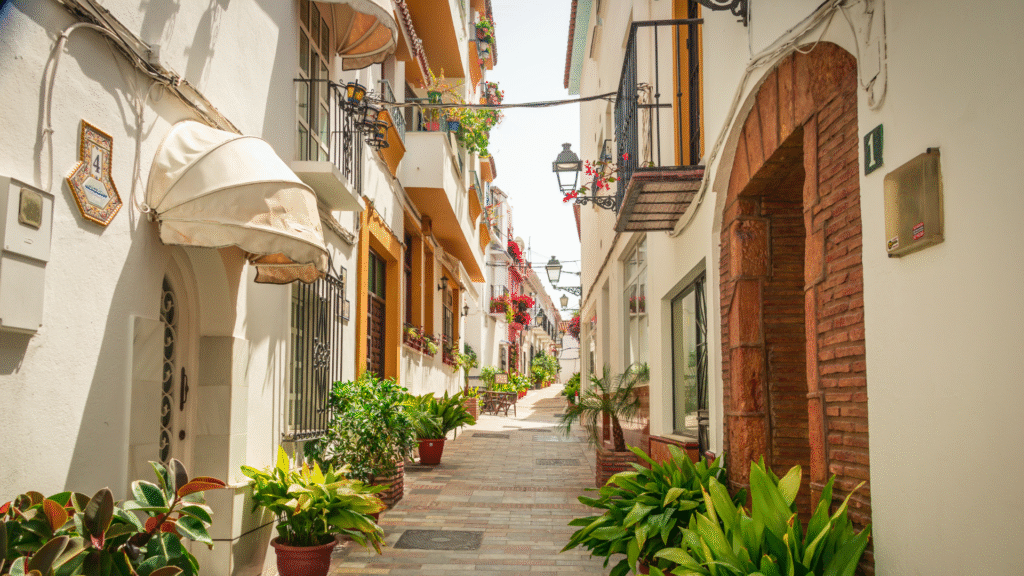Updated 3 October 2025
Legal Requirements in Marbella are a crucial consideration for any foreign buyer entering the Spanish property market. While purchasing real estate in Marbella is a straightforward process, understanding the legal steps, documentation, taxes, and procedures is essential to ensure a smooth and secure transaction. The following guide outlines everything buyers need to know in 2025, including updated rules now that the Golden Visa no longer exists and how these changes impact the overall legal requirements in Marbella. Many international buyers compare these steps with the process of buying real estate in Spain as a foreigner.
Is a lawyer required when buying property in Marbella?
Hiring a lawyer is not part of the mandatory legal requirements in Marbella, but it is highly recommended. A qualified lawyer will:
-
Verify legal ownership
-
Check for debts or encumbrances
-
Review planning and licensing
-
Draft and negotiate contracts
-
Coordinate completion at the notary
Most foreign buyers choose to work with an independent lawyer because it is the safest and most efficient way to avoid legal risks. Some buyers also compare these steps with the legal requirements for purchasing property in Marbella.
Bottom line: not legally required, but strongly recommended as best practice.
What documents are required to buy property in Marbella?
To meet the legal requirements in Marbella for property purchases, buyers must typically provide:
-
Valid passport or ID
-
NIE (Número de Identificación de Extranjero) – essential for taxes, banking, and registration
-
Proof of funds/source of funds (AML compliance)
-
Spanish bank account for payments, utilities, taxes, and mortgages
Your lawyer will also verify seller-side documents:
-
Nota Simple (Land Registry report)
-
Title deed
-
Community fee receipts
-
Local tax receipts
-
Certificates indicating the property is free of debts
Note: Without an NIE, buyers cannot complete the transaction at the notary or register ownership. Buyers unfamiliar with the procedure often refer to the steps involved in purchasing real estate in Spain.
How does the notary process work in Marbella?
As part of the legal requirements in Marbella, all property transfers must be documented as a public deed (Escritura Pública) before a Spanish notary. The notary:
-
Confirms identities
-
Ensures legal compliance
-
Reads and authorizes the contract
After signing, the deed is submitted to the Land Registry, which officially secures ownership against third parties and is necessary for obtaining financing.
In Spain, the purchase is not fully protected until it is notarized and registered.
What taxes must be paid when buying property in Marbella?
Taxes form an important part of the legal requirements in Marbella. Rates differ depending on whether the property is a resale or a new build.
Resale properties
-
Transfer Tax (ITP): 7% in Andalusia
New build properties
-
VAT (IVA): 10%
-
Stamp Duty (AJD): ~1–1.5% (typically 1.2%)
Other common costs
-
Legal fees: ~1%
-
Notary + Registry fees: ~0.5–1%
General guideline:
Expect to pay 10–12% extra for resale purchases and slightly more for new builds due to VAT.
Regional comparison (Andalusia: Marbella & Estepona)
| Location | ITP (Resale) | IVA (New) | AJD (New) | Notary + Registry |
|---|---|---|---|---|
| Marbella | ~7% | 10% | ~1–1.5% | ~0.5–1% |
| Estepona | ~7% | 10% | ~1–1.5% | ~0.5–1% |
Some buyers also compare regional obligations with the local taxes for property owners in Estepona.
Can foreign buyers get a mortgage in Marbella?
Yes. Financing forms part of the practical legal requirements in Marbella for many buyers. Spanish banks lending to non-residents generally offer:
-
LTV: 60–70%
-
Term: 15–25 years
-
Documentation: proof of income, tax returns, bank statements, credit report
It’s advisable to obtain mortgage pre-approval before signing the private contract. Foreign buyers frequently research how to get a mortgage as a non-resident.
How long does the property purchase process take?
A typical transaction takes 6–12 weeks, depending on due diligence and mortgage approval.
Standard payment timeline
-
Reservation deposit (€3,000–€10,000)
-
Private purchase contract (Contrato de Arras) – ~10% deposit
-
Completion at the notary and payment of the remaining balance
(Clarification: The 10% deposit is at the private contract stage, not at reservation.)
Are there restrictions for non-EU buyers in Marbella?
No. Under the legal requirements in Marbella, foreigners of any nationality can buy property freely and do not need Spanish residency to do so.
Important 2025 update: Golden Visa abolished
Spain’s former Golden Visa (residency for €500,000+ property investment) has been discontinued.
-
New applicants cannot obtain residency through real estate purchases.
-
Existing Golden Visa holders may continue renewing under the previous regulations.
-
Alternative residency options include:
-
Non-Lucrative Visa
-
Digital Nomad Visa
-
Entrepreneur visas not linked to property alone
-
What is the role of the Land Registry in Marbella?
The Land Registry is central to the legal requirements in Marbella because it:
-
Confirms legal ownership
-
Lists debts, liens, and encumbrances
-
Protects ownership rights
-
Is necessary for mortgage financing
A buyer’s title is not fully protected until it is registered.
What additional costs should buyers expect?
In addition to taxes, the Legal Requirements in Marbella involve several other costs:
-
Legal fees: ~1–1.5%
-
Notary + Registry: ~0.5–1%
-
Mortgage appraisal/arrangement: varies by lender
-
Community fees: €50–€400+ per month
-
IBI (local property tax): ~0.3–1.1% annually
-
Insurance and utility setup
Total estimated closing cost: ~10–13% of the purchase price.
Buyers comparing similar markets often check the average property prices in Nueva Andalucia or broader real estate investment opportunities in southern Spain.
How do inheritance laws affect foreign buyers?
Spain has forced-heirship rules, but under EU Regulation 650/2012, eligible foreign buyers can select their national law to govern inheritance through a Spanish will.
Recommendation: Draft a Spanish will coordinated with your home-country estate plan.
What should buyers know about off-plan purchases?
Off-plan purchases involve additional legal requirements in Marbella:
-
Ensure all deposits are protected by bank guarantees
-
Confirm the building licence and planning compliance
-
Review the developer’s reputation and delivery timeline
Off-plan properties often offer 10–15% savings, but must be handled with proper legal oversight. Buyers considering this option often compare opportunities with new developments or off-plan properties in Marbella.
What is the role of escrow accounts in property transactions?
Escrow accounts add security by holding deposits until contractual obligations are met. This is especially valuable for high-value or off-plan transactions.
Common pitfalls buyers should avoid
-
Not using an independent lawyer
-
Failing to check debts or encumbrances
-
Signing before mortgage pre-approval
-
Underestimating closing costs
-
Not drafting a Spanish will
FAQ on Legal Requirements in Marbella
Is an NIE required for all buyers?
Yes. It is mandatory for completion and registration.
Can property be purchased remotely?
Yes, with a Power of Attorney.
What if a property has outstanding debts?
Debts are tied to the property, not the owner. Your lawyer must ensure they are cleared.
Do buyers need a Spanish bank account?
Practically yes, for taxes, utilities, and mortgage payments.
What is the usual deposit structure?
€3,000–€10,000 reservation, then ~10% at the private contract.


